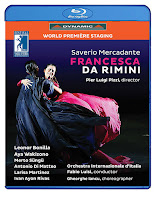the traveler's resource guide to festivals & films
a FestivalTravelNetwork.com site
part of Insider Media llc.
Film and the Arts
Broadway Review—Arthur Miller’s “The Price”
- Details
- Parent Category: Film and the Arts
- Category: Reviews
- Published on Saturday, 18 March 2017 02:47
- Written by Kevin Filipski
 |
| Danny DeVito, Mark Ruffalo and Tony Shaloub in Arthur Miller's The Price (photo: Joan Marcus) |
Off-Broadway Review—Bryna Turner’s “Bull in a China Shop”
- Details
- Parent Category: Film and the Arts
- Category: Reviews
- Published on Thursday, 16 March 2017 03:52
- Written by Kevin Filipski
 |
| Enid Graham and Ruibo Qian in Bull in a China Shop (photo: Jenny Anderson) |
March '17 Digital Week II
- Details
- Parent Category: Film and the Arts
- Category: Reviews
- Published on Wednesday, 15 March 2017 03:19
- Written by Kevin Filipski
All We Had
(Criterion)
Rossini—Armida
Grigory Sokolov—Mozart-Rachmaninoff Concertos/A Conversation That Never Was (Deutsche Grammophon)
One of the most enigmatic artists in classical music, Russian pianist Grigory Sokolov doesn’t give interviews and hasn’t performed with orchestras in years: so how do you put out a new release of his musicmaking? Deutsche Grammophon has dug out two of his older recordings: his sizzling 2005 recording of Mozart’s Piano Concerto No. 23 and his even more dazzling 1995 recording of the fiendishly difficult Rach 3 (Rachmaninoff’s Third Concerto).
Add to that Nadia Zhdanova’s documentary, A Conversation That Never Was, which recounts the pianist’s fascinating career through interviews with everyone but him, a less than definite portrait of a reluctant master.
Broadway Review—Joshua Harmon’s “Significant Other”
- Details
- Parent Category: Film and the Arts
- Category: Reviews
- Published on Monday, 13 March 2017 23:20
- Written by Kevin Filipski
Significant Other
Written by Joshua Harmon; directed by Trip Cullman
Opened March 2, 2017
|
A scene from Significant Other (photo: Joan Marcus) |
Like his Bad Jews, Joshua Harmon’s Significant Other is crammed with clever, even riotously funny dialogue, along with moments when characters mouth off crassly and snidely. But there’s an emotional weight to the new work that makes it more palatable than the sour earlier play.
We meet 29-year-old Jordan Berman (a name very close to the author’s), a gay man working in a Manhattan office, whose three closest friends are all female: sassy Kiki, fun-loving Vanessa and down-to-earth Laura, with whom Jordan roomed with in college. One by one, each woman meets a man and gets married; Jordan, meanwhile, is unable to begin, let alone sustain, a relationship. Significant Other begins at Kiki’s bachelorette party and ends at Laura’s wedding: in between Jordan becomes ever more desperate to find intimacy, especially when he realizes that the women will not be friends in the same way once they have husbands to prioritize.
But it’s when Laura—his best friend and soulmate—finally finds love that Jordan feels his own loneliness even more forcefully. Making him feel even more pathetic are visits to his loving, elderly grandmother, who both gives him positive reinforcement and makes him feel worse. There are also painfully funny scenes of Jordan trying to date Will, a coworker who agrees to see a bad documentary about the Franco-Prussian war with him, and a failed relationship with Zach, whom Jordan met while interning in Chicago, but who can’t let go of his own recent ex.
Harmon’s likably dark comedy chronicles how relationships constantly fluctuate, and the play’s often amusing conversations lay bare the frayed bonds within even the strongest friendships—like Jordan and Laura’s after her engagement. But the biggest sympathy for Jordan comes courtesy of Gideon Gick’s marvelously shaded performance, in which the shyness, neediness, and bruised but beating heart of this confused young man are laid bare wittily and compassionately.
Jordan’s quartet of women is beautifully embodied by four fine actresses. Sas Goldberg makes a sassy and vivacious Kiki, Rebecca Naomi Jones an appealing Vanessa, and Lindsey Mendez a sensitive and supportive Laura. Barbara Barrie is on hand to provide a lovely oasis of calm as Jordan’s grandmother.
Mark Wendland’s set design spiffily evokes the Manhattan apartments, offices and public spaces these people move through, complemented by Kaye Voyce’s adept costumes and Japhy Weideman’s expressive lighting. Add to all of this Trip Cullman’s knowing direction, which makes Significant Other anything but insignificant.
Significant Other
Booth Theatre, 222 West 45th Street, New York, NY
significantotherbroadway.com
More Articles...
Newsletter Sign Up















